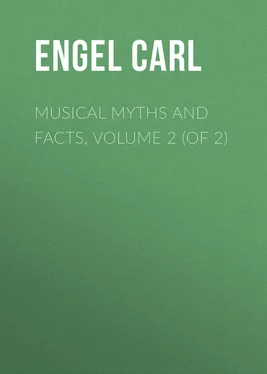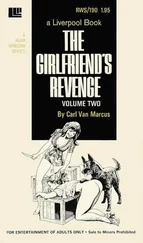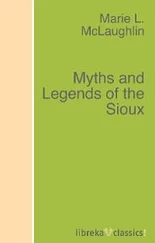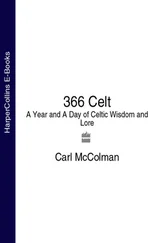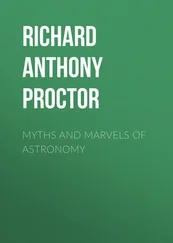Carl Engel - Musical Myths and Facts, Volume 2 (of 2)
Здесь есть возможность читать онлайн «Carl Engel - Musical Myths and Facts, Volume 2 (of 2)» — ознакомительный отрывок электронной книги совершенно бесплатно, а после прочтения отрывка купить полную версию. В некоторых случаях можно слушать аудио, скачать через торрент в формате fb2 и присутствует краткое содержание. Жанр: music_dancing, foreign_antique, foreign_prose, на английском языке. Описание произведения, (предисловие) а так же отзывы посетителей доступны на портале библиотеки ЛибКат.
- Название:Musical Myths and Facts, Volume 2 (of 2)
- Автор:
- Жанр:
- Год:неизвестен
- ISBN:нет данных
- Рейтинг книги:5 / 5. Голосов: 1
-
Избранное:Добавить в избранное
- Отзывы:
-
Ваша оценка:
- 100
- 1
- 2
- 3
- 4
- 5
Musical Myths and Facts, Volume 2 (of 2): краткое содержание, описание и аннотация
Предлагаем к чтению аннотацию, описание, краткое содержание или предисловие (зависит от того, что написал сам автор книги «Musical Myths and Facts, Volume 2 (of 2)»). Если вы не нашли необходимую информацию о книге — напишите в комментариях, мы постараемся отыскать её.
Musical Myths and Facts, Volume 2 (of 2) — читать онлайн ознакомительный отрывок
Ниже представлен текст книги, разбитый по страницам. Система сохранения места последней прочитанной страницы, позволяет с удобством читать онлайн бесплатно книгу «Musical Myths and Facts, Volume 2 (of 2)», без необходимости каждый раз заново искать на чём Вы остановились. Поставьте закладку, и сможете в любой момент перейти на страницу, на которой закончили чтение.
Интервал:
Закладка:
Carl Engel
Musical Myths and Facts, Volume 2 (of 2)
MATTHESON ON HANDEL
The biographical notices of Handel's youth transmitted to us are but scanty and unsatisfactory. The same might, however, be said of most of our celebrated musicians, and the cause of the meagreness is, as we have seen in another place, easily explicable. 1 1 Vol. I., p. 94.
Of Handel's musical pursuits before his arrival in Hamburg, at the age of eighteen, we know scarcely more than that he was a pupil of Zachau, an organist at Halle, where Handel was born; that, as a boy, he paid a short visit to Berlin, where his talent attracted some attention; and that subsequently he studied Law, at the University of Halle. The latter fact indicates that the choice of music as a profession was not hastily determined in his childhood; and this surmise accords with the stated reluctance of his father, a medical practitioner in Halle, to have his son brought up as a musician.
Arrived in Hamburg, in the year 1703, Handel soon made the acquaintance of Mattheson, an intelligent and industrious young musician, who was competent to appreciate the genius of Handel, and faithfully to record the progress of the promising youth during his sojourn in Hamburg, which lasted about three years. Mattheson was four years older than Handel, – a difference which, between two lads of twenty-two and eighteen, is not without some weight in their mutual intercourse, especially if the elder is already enjoying a certain success, while the younger is a new comer, intent upon gaining a footing. Mattheson's observations about Handel, although occasionally tinged with jealousy of his talented brother artist, are therefore particularly noteworthy in the biography of the great composer.
Johann Mattheson, born in Hamburg, in the year 1681, was at the time of Handel's arrival tenor singer and musical composer at the theatre of the town, and teacher of singing, the harpsichord, and thorough-bass. When, in the year 1705, an increasing deafness compelled him to relinquish his engagement as singer and actor in operas at the theatre, his accomplishments, combined with commendable habits of industry and punctuality, induced the British Ambassador at Hamburg to engage him as tutor for his son, and afterwards to appoint him his secretary. During an active life of unusual duration, – he died in the year 1764, at the age of 83, – Mattheson published a great number of treatises on musical subjects, some of which still possess value as books of reference. His vanity, not unfrequently exhibited in his writings, may in some measure have been nourished by his many flatterers among his musical contemporaries, who evidently feared his sarcastic pen all the more because they did not possess the literary ability to engage successfully in a controversy with him when they disagreed with his opinion.
As regards the musical compositions of Mattheson, we know from his own statement, in his autobiography, that his operas were greatly admired by the public; but this favourable opinion is hardly supported by such of his compositions as have appeared in print. A collection of twelve Suites for the harpsichord, the manuscript of which he sent to England, where it was published in two volumes, in the year 1714, bears the title: – 'Pièces de Clavecin, en deux Volumes, consistant des Ouvertures, Preludes, Fugues, Allemandes, Courentes, Sarabandes, Gigues et Aires, composées par J. Mattheson, Secr. – London, printed for J. D. Fletcher.' The work is prefaced by an address to the musical public, written by the editor, J. D. Fletcher, in which he says: – "Britain may now hope to return those arts with interest, which she borrowed from other nations; and foreigners in time may learn of those whom their forefathers taught… As the harpsichord is an instrument yet capable of greater improvement, so the following pieces claim a precedence of all others of this nature; not only that they are composed by one of the greatest masters of the age, in a taste altogether pleasing and sublime; but, as they are peculiarly adapted to that instrument, and engraven with an exactness that cannot be equall'd by any of their nature yet extant." Sir John Hawkins, who probably had not seen these Suites, relates: "Mattheson had sent over to England, in order to their being published here, two collections of lessons for the harpsichord, and they were accordingly engraved on copper, and printed for Richard Meares in St. Paul's Church-yard, and published in the year 1714. Handel was at that time in London, and in the afternoon was used to frequent St. Paul's Church for the sake of hearing the service, and of playing on the organ after it was over; from whence he and some gentlemen of the choir would frequently adjourn to the Queen's Arms tavern in St. Paul's Church-yard, where was a harpsichord. It happened one afternoon, when they were thus met together, Mr. Weely, a gentleman of the choir, came in and informed them that Mr. Mattheson's lessons were then to be had at Mr. Meares' shop; upon which Mr. Handel ordered them immediately to be sent for, and upon their being brought, played them all over without rising from the instrument." Still more odd appears Hawkins' statement that Handel "approved so highly of the compositions of Mattheson, particularly his lessons, that he was used to play them for his private amusement." 2 2 Hawkins's 'History of Music,' Vol. V., p. 253.
If Handel really could amuse himself by playing these lessons, which are in no respect superior to the usual productions of the mediocre musicians of his time, it probably was only from feelings of curiosity and kindness towards a former friend. Mattheson composed a great deal, and made at last even his own Funeral Anthem, which after his death was performed to his honour, and which, if report speaks correctly, sounded truly miserable; and this may well be believed, considering that when he composed the music Mattheson had been deaf for nearly thirty years. Still, though he was but a poor composer, he possessed ample musical knowledge and practical skill to enable him to judge the works of his superior contemporaries. His jealous disposition, however, sometimes prevented him from forming a just opinion. His disparaging critique of an early work of Handel, in his 'Critica Musica,' Hamburg, 1725, at a time when Handel had become a resident in London, was evidently influenced by jealousy, and the same is more or less observable in his other writings. Nevertheless, he took every opportunity to keep up a correspondence with Handel, and to boast of his former familiarity with the celebrated man. Mattheson, having solicited Handel's opinion upon a certain theoretical question on which he was in dispute with some German musicians, and having also expressed the hope that Handel might favour him with some biographical notices, Handel, at the conclusion of his letter in reply, excuses himself for not complying with the second point in question: —
"Pour ce qui est du second point, vous pouvez juger vous même qu'il demande beaucoup de recueillement, dont je ne suis pas le maître parmi les occupations pressantes, que j'ai par devers moi. Dès que j'en ferai un peu debarassé, je repasserai les Epoques principales que j'ai eues dans le cours de ma Profession, pour vous faire voir l'estime et la consideration particulière avec laquelle j'ai l'honneur d'être,
Monsieur, Votre très humble et très Obeissant Serviteur, G. F. Handel.A Londres, Fevr. 24, 1719."
In the year 1740, Mattheson published his Grundlage einer Ehrenpforte ('Foundation of a Triumphal Arch'), which contains a series of biographies of the celebrated musicians of his time, – Mattheson's included. During the preparation of this work, he addressed another request to Handel to supply him with materials for a correct biography. He also dedicated twelve fugues of his own composition to Handel, of which he sent him a copy to ensure prompt attention. Handel's reply was again evasive: —
Читать дальшеИнтервал:
Закладка:
Похожие книги на «Musical Myths and Facts, Volume 2 (of 2)»
Представляем Вашему вниманию похожие книги на «Musical Myths and Facts, Volume 2 (of 2)» списком для выбора. Мы отобрали схожую по названию и смыслу литературу в надежде предоставить читателям больше вариантов отыскать новые, интересные, ещё непрочитанные произведения.
Обсуждение, отзывы о книге «Musical Myths and Facts, Volume 2 (of 2)» и просто собственные мнения читателей. Оставьте ваши комментарии, напишите, что Вы думаете о произведении, его смысле или главных героях. Укажите что конкретно понравилось, а что нет, и почему Вы так считаете.
